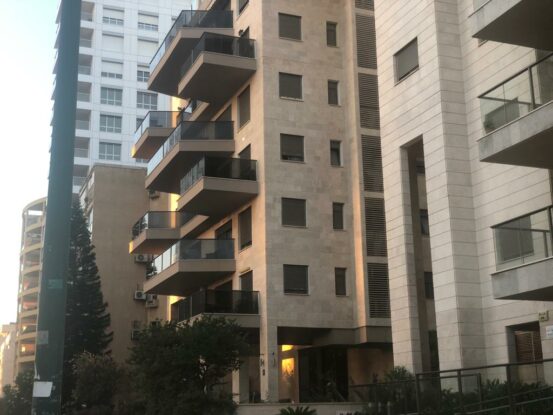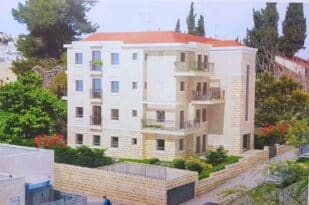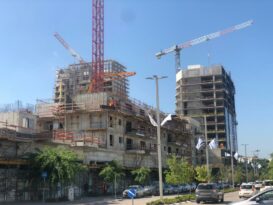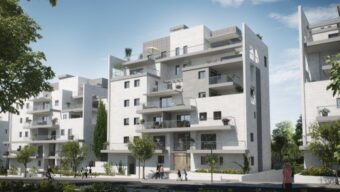While the economy attempts to recover from the negative effects of Covid-19, the Israeli housing market shows positive signs, including an increase in demand for apartments, as well as a slight rise in the price of apartments.
The latest price index, published on Friday by the Central Bureau of Statistics, indicates a slight increase of 0.4% in prices during May-June, compared to the prices of April-May. Also, compared to last year’s prices of May-June 2019, prices increased by 1.9%. While this data on the Israeli housing market is certainly positive, it comes after two consecutive months in which the index was negative (a decrease of 0.8% in April-May; and of 0.1% during March-April), therefore, it is too early to talk about the beginning of a trend.
Geographically, the main price increase was concentrated in the Central District, which extends from Netanya in the north, to Rehovot in the south, and includes some of Israel’s largest cities such as Rishon LeZion, Petach Tikva and Netanya. This area saw a 1.5% increase in prices. In the Tel Aviv district, which includes Tel Aviv and its adjacent cities, an average increase of 0.5% occurred. In contrast, the Jerusalem district has seen a slight decline of 0. 3% in prices, and the Northern District has also experienced a decline of 0.4%.
New apartments decrease in price
In a survey of prices of new apartments in the Israeli housing market, it was found that prices decreased by 2% during May-June 2020 compared to prices of April-May. However, it is important to note that about 40% of all transactions in the new apartment sector were part of the government’s “Mechir le’Mishtaken” program, subsidized housing for first-time purchasers, so it is complicated to assess accurate change in the market. During the past 12 months, an average decline of 2.9% has been noted in the prices of new apartments.
Overall, the average price of an apartment purchased during the second quarter of this year was 1.52 million shekels, a decrease of 6% relative to the average price of a transaction in the first quarter – 1.62 million shekels.
Record number of transactions in the Israeli housing market June 2020
At the same time, a publication on the real estate sector by the Ministry of Finance indicates that the number of monthly transactions recorded in June of this year was among the highest recorded in the past decade, at close to 11,000, which is 16% higher than the number of transactions in June 2019. This is after three consecutive months (March, April and May) where sales levels were particularly low.
However, since the volume of sales in April and May was so low due to Covid-19, a total of only 20,600 apartments was sold in the entire second quarter of 2020 – making it the weakest quarter, in terms of number of transactions, since the great social protests in Israel which erupted in the summer of 2011. In addition, this reflects a decline of 19.2% in the number of transactions compared to the first quarter of 2020, during approximately 25,500 apartments were sold throughout Israel.
Low levels of investment — for now
Approximately 1,200 of the transactions in June 2020 were apartments purchased by investors (owners of more than one apartment and/or foreign residents), representing 11% of all transactions — one of the lowest investment levels recorded in recent years. By geographic segmentation, there was a significant increase in investment in the periphery areas. The publication states that “It is possible, that the lower price levels that characterize the periphery areas are incentivizing purchases in these areas during a period in which a large portion of the local households has diminished ability to purchase”.
It should be noted that in June 2020, 2,100 apartments were sold by investors, so the total volume of apartments owned by investors decreased by 900. The Ministry of Finance has noted that since higher purchase taxes were imposed on investors in 2015, the volume of investors’ apartments plummeted to 25,000. However, we expect to see a significant change in that trend in the near future, primarily due to the recently approved reduction in purchase tax for investors, bringing down the minimum rate from 8% to 5% for investors.







